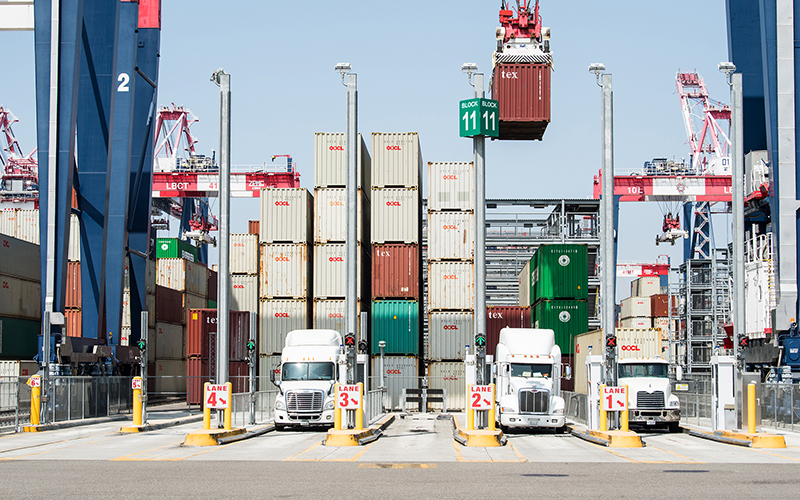WASHINGTON – Arizona business leaders said they worry that a 15% tariff on $300 billion in Chinese goods that takes effect Sunday will backfire and end up hurting economic growth at home.
The new tariffs are set to be imposed on more than 6,000 items but will fall largely on consumer goods, according to the National Retail Federation. It said 60% of the goods targeted will include such items as TVs, cellphones, shoes, clothes, furniture, toys and musical instruments.
The tariffs were originally set at 10% but were ratcheted up this month by President Donald Trump in response to tariffs the Chinese imposed on U.S. goods – just the latest rounds in a back-and-forth tariff war between the two countries.
Glenn Hamer, president and CEO of the Arizona Chamber of Commerce and Industry, is calling for the “immediate ceasefire” in the escalating trade war.
“About 65% of the economy is really associated with consumer spending,” Hamer said. “If consumer confidence drops and the consumer is paying more toward staple items, that can and will hinder our country’s economic growth.”
But in remarks to reporters Friday, Trump insisted that the tariffs are working and that the latest escalation will go ahead as planned Sunday. He claimed that American farmers who have been hurt by Chinese tariffs have urged him to continue pressing for a new trade deal, and he said the Chinese economy is feeling the pressure more acutely.
“A lot of companies have left China and a lot more are leaving … they’re having the worst year they’ve had I understand in 61 years,” said Trump, who added that the two countries are continuing to negotiate.
But while Trump has said on multiple occasions that higher tariffs are a step toward a trade deal with China, one expert on trade policy said it’s not that simple.
“I think China is in a difficult position,” said Simon Lester, an associate director at the Cato Institute, a libertarian-leaning think tank. “If they sign onto a deal that looks all unfavorable to them, they will look like they caved. So I think they have a strong disincentive to actually sign a deal under this kind of bullying and pressure.”
In a letter to Trump on Wednesday from the American Free Trade Coalition, 161 manufacturers, farmers, retailers and other businesses – including the Arizona Technology Council – urged the president to postpone the tariffs until after the holiday season. The letter said that most of the merchandise sold over the holidays arrives on U.S. shores in September or October and would be affected by a tariff increase.
One of the business groups that signed the letter, the American Apparel & Footwear Association, condemned Trump’s policy of steadily increasing tariffs on imports. Association President and CEO Rick Helfenbein said in a separate statement that the administration’s approach will be a disaster for consumers, businesses and the economy.
“For two and a half years, we have been promised a new and innovative approach, yet what we’ve been given is a 1930s trade strategy,” Helfenbein’s statement said.
Hamer said China is one of Arizona’s largest trading partners, but he worries that more than trade could be at stake. He noted that Chinese students and tourists contribute to Arizona’s economy and that rising tensions between the countries could hurt the state’s relationship with China
“You take a look at Arizona’s economy, and all sectors one way or another are interacting with China,” he said.

